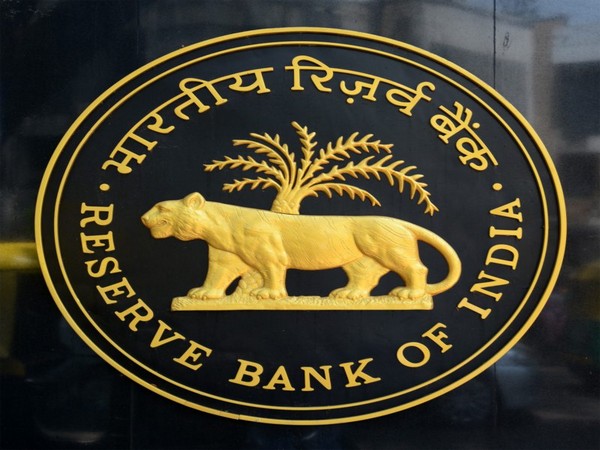RBI panel's recommendations to promote orderly growth of digi-lending, say industry players

- Country:
- India
The recommendations made by the RBI working group on digital lending, including lending through online platforms and mobile apps, will promote orderly growth of sector, industry players said.
In a comprehensive report, the Working Group constituted by the RBI has made several recommendations, including a separate legislation to prevent illegal digital lending activities, subjecting digital lending apps to a verification process by a nodal agency and establishing a self-regulatory organisation (SRO) covering the participants in the digital lending ecosystem.
Emkay Global Financial Services in a note said the proposals appear to be largely constructive for the digital lending space and are on expected lines.
That said, the introduction of regulations may moderate the growth rate of digi-loans, which have seen strong growth in a short term in countries like China and India (P2P), it said.
''However, the regulations would facilitate orderly growth in the long run, similar to MFIs post 2010. As of now, most buy-now-pay-later (BNPL) credit is onboarded on bank/ NBFC books,'' it added.
Commenting on the recommendations, V Swaminathan, CEO of Andromeda and Apnapaisa, said that given the pace of expansion of digital lending, safeguarding the interest of consumers has now become the most important task for the authorities as well as industry players.
The RBI Working Group has rightly made a case for separate legislation to prevent illegal digital lending activities and a SRO covering the participants in the digital lending ecosystem, he said.
''It has to be ensured that consumers do not lose faith in the players in the digital lending space. The Working Group has made important suggestions for growth of the sector,'' he said.
Welcoming the recommendations, the Fintech Association for Consumer Empowerment (FACE) said SRO is the call of the hour in order to structure the industry and to set the rules for the Fintech members and customers.
''We welcome the RBI's step to bring in higher standards of ethical behaviour and code of conduct for the digital lending platforms,'' it said.
Gaurav Chopra, founder and CEO of IndiaLends and founding member of Digital Lending Association of India (DLAI), believes that recommendations such as on auditable logs for every action that a user performs on the app will be a game changer for India's digital lending industry.
''It will demolish many existing loan sharks and curb unfair practises,'' he said, and added that the report seeks to safeguard consumers from unregulated digital lenders who have the potential to exploit borrowers with unfair or predatory terms.
Commenting on the report, Ankit Rata, co-founder and CEO of Signzy, said that if the recommendations are passed, it will not only help protect consumers but also restrict breaches of data privacy while curbing fraudulent transactions.
The Reserve Bank of India (RBI) had in January last constituted the working group under the chairmanship of Executive Director Jayant Kumar Dash on digital lending, including lending through online platforms and mobile apps.
The working group was set up against the backdrop of business conduct and customer protection concerns arising out of the spurt in digital lending activities. The stakeholders can send their comments on the report to the RBI by December 31.
Lalit Mehta, co-founder and CEO of Decimal Technologies, said the report by the RBI's working group on digital lending is a welcome move as it is a significant step towards creating a safer digital lending ecosystem.
Digital lending innovation is crucial for the country as it has the potential to address the credit gap, especially among micro, small and medium enterprises (MSMEs) and the population living in underbanked areas, Mehta said.
Raman Kumar, founder and chairman of CASHe, said digital lending has a huge potential in a mass consumer market like India. However, a key deterrent is a ''perceived'' lack of regulation when dealing with pure-play platform companies and new credit products that the consumer is exposed to, like EMI-based purchases or otherwise called BNPL (buy now, pay later).
Among other things, the group suggested development of certain baseline technology standards and compliance with those standards as a pre-condition for offering digital lending solutions.
The loans, it added, should be disbursed directly into the bank accounts of borrowers and serviced only through bank accounts of the digital lenders.
Data collection with prior and explicit consent of borrowers should have verifiable audit trails and should be stored in servers located in India.
It is further stipulated that the use of unsolicited commercial communications for digital loans should be governed by a code of conduct to be put in place by the proposed SRO.
Algorithmic features used in digital lending to be documented to ensure necessary transparency, said the report, on which the RBI has invited comments from stakeholders till December 31.
(This story has not been edited by Devdiscourse staff and is auto-generated from a syndicated feed.)
ALSO READ
UNDP report highlighting digital transformation for Small Island Developing States
RBI proposes cash deposits through UPI; widens digital currency for retail
'Incredible India': UNGA President Dennis Francis lauds digitalisation, infrastructure investment in India
Digitalization crucial in advancement of Ghana's justice system: VP Bawumia
Orange Digital Center partners with Coursera to launch free certification training program










